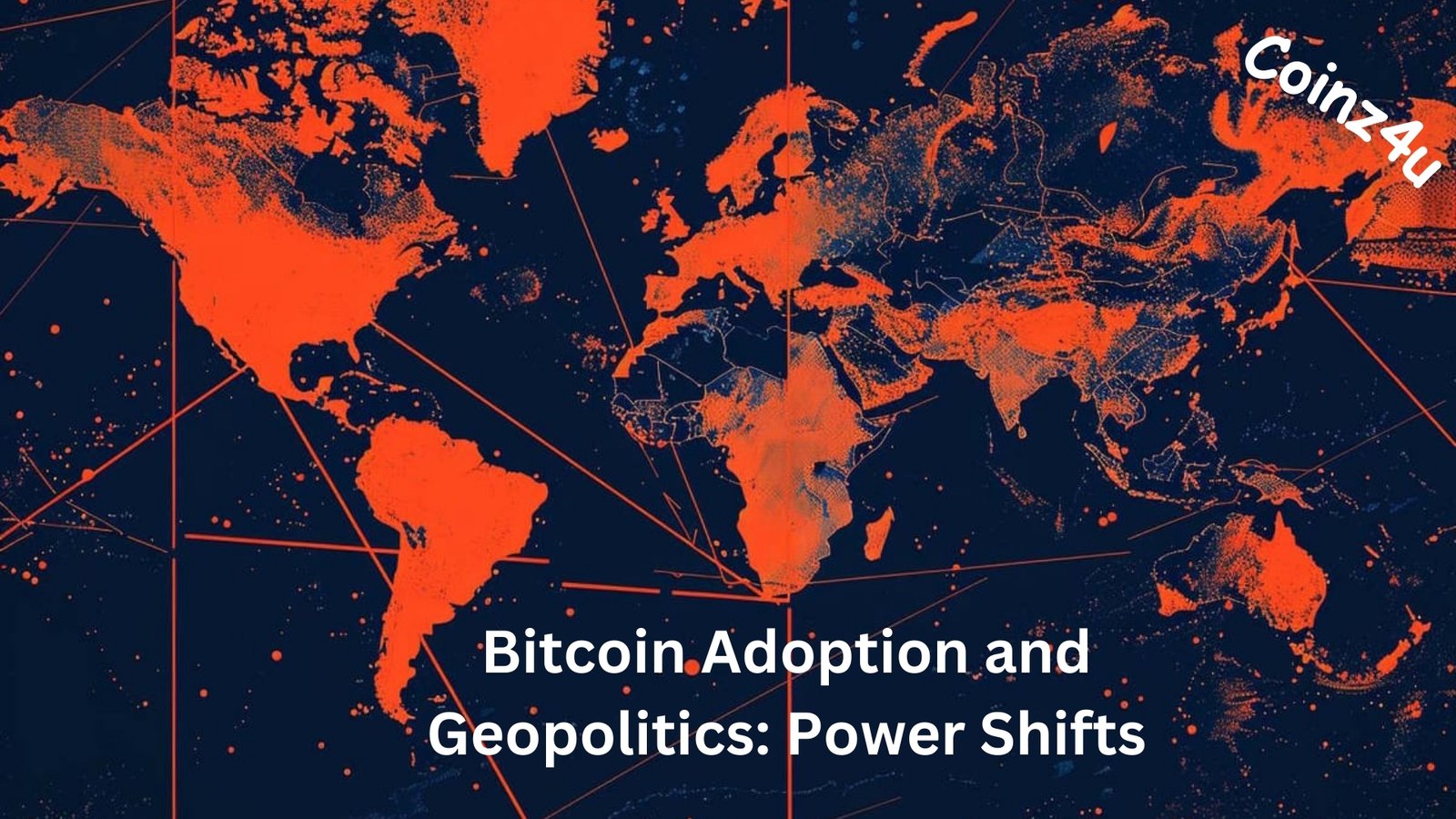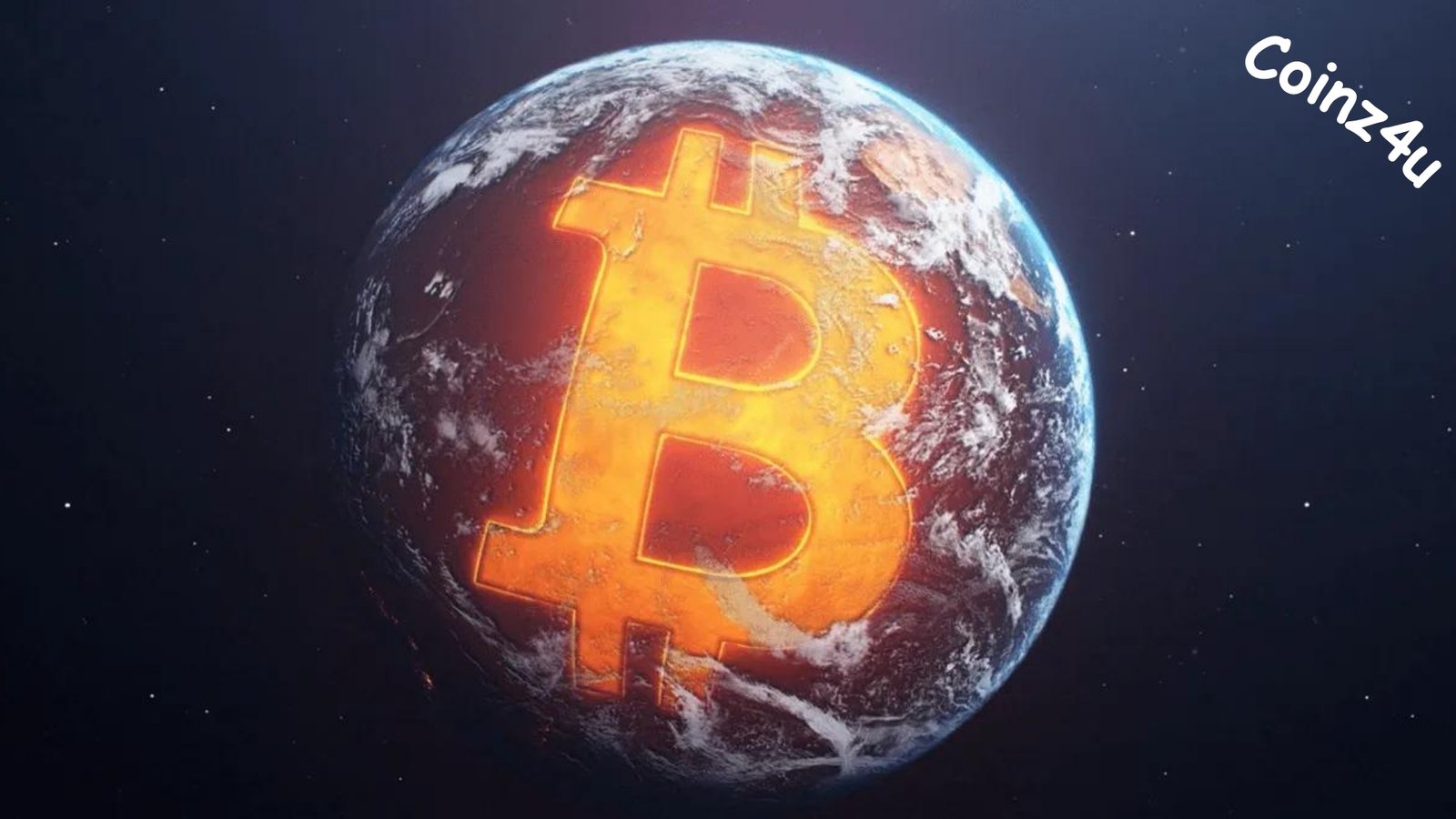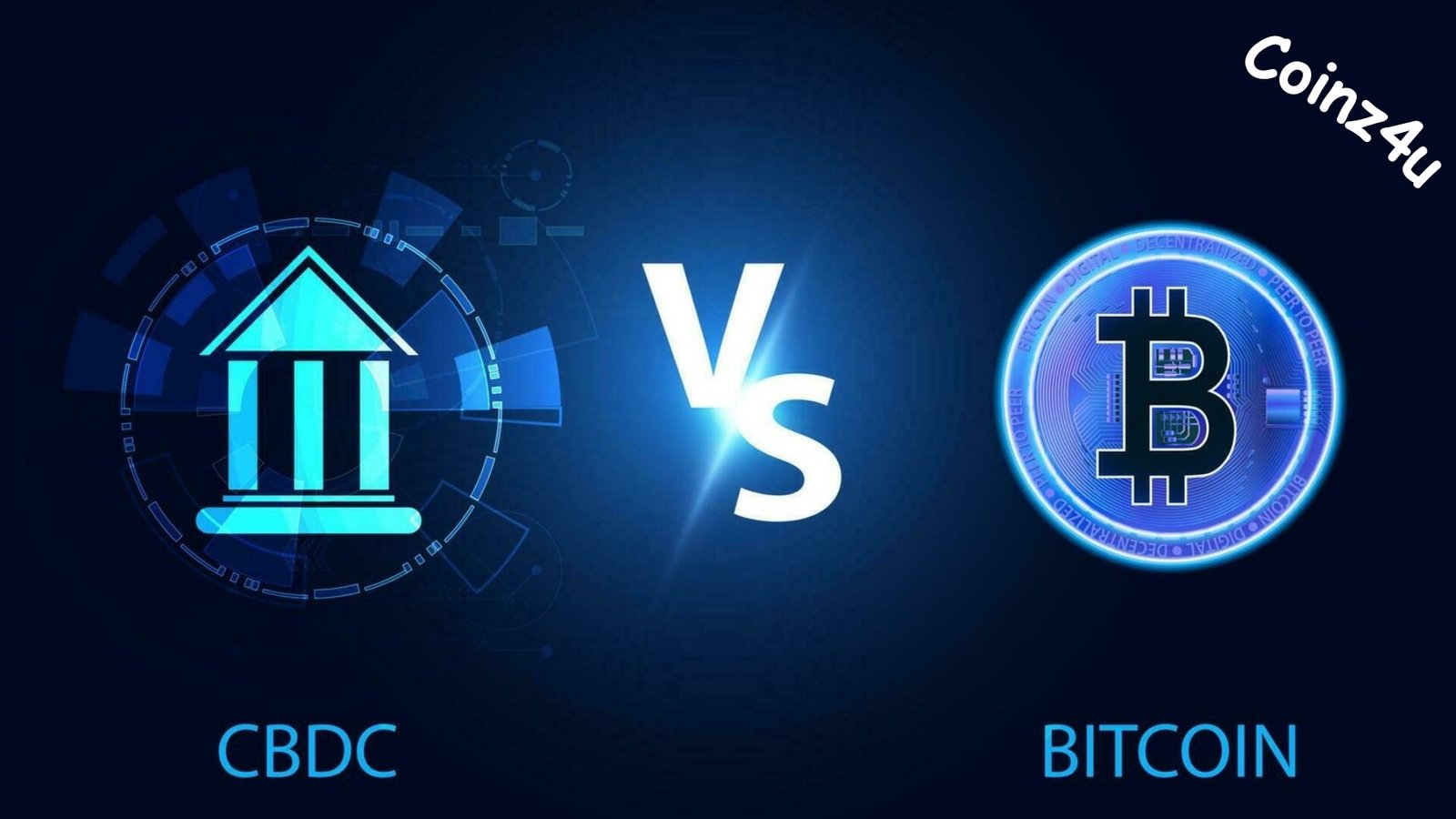The term “geopolitics of Bitcoin” describes the worldwide power dynamics affected by the economic, political, and strategic fallout of Bitcoin’s meteoric development. As a field of study, geopolitics examines the interplay between global geography, power, and politics.
The course examines the effects of physical features, such as land, resources, and borders, on international relations, politics, and the distribution of power. Engaging in geopolitical analysis can help students understand the intricacies of global politics and the actions and goals of nations in their pursuit of global domination and influence.
The $57,068 value of Bitcoin (BTC) raises issues of economic sovereignty related to governments’ control over their currencies. It also changes the dynamics of financial power, shifting it away from long-established financial centers toward newer ones that embrace cryptocurrency.
Because Bitcoin is decentralized, regulatory difficulties require different approaches in different countries. Because of its dual usage as a tool for economic warfare and illicit operations and as a tool for technological advantage, Bitcoin is associated with geopolitical dangers and possible tensions. Understanding Bitcoin’s geopolitics is crucial to comprehend its impact on global power dynamics, economic systems, and international relations in the Coinz4u post.
Bitcoin’s Rise Disrupting Finance
The advent of decentralized digital currencies like Bitcoin has shaken traditional monetary systems to their foundations. Blockchain, the underlying technology of Bitcoin, is a decentralized network independent of governments and banks. Therefore, global, direct P2P transactions are now possible without the necessity for intermediaries in financial transactions. By giving people access to the worldwide economy, BTC can empower the unbanked and underbanked masses.
Transparent and secure public ledgers record Bitcoin transactions, preventing fraud and guaranteeing integrity. By dismantling the role of traditional financial intermediaries, Bitcoin also gives users more excellent agency over their own money. Bitcoin, a limited-supply, inflation-resistant currency, may offer stability.
In addition to spurring innovation in financial technology, Bitcoin’s rise has accelerated the introduction of blockchain-based apps and cryptocurrencies. Bitcoin’s decentralized and effective alternative to traditional banking systems has revolutionized how people view and deal with money.
Bitcoin Adoption and Geopolitics Power Shifts

As explained by Coinz4u, Bitcoin’s global reach has significant geopolitical implications, challenging traditional notions of economic control and national borders.
Economic sovereignty and control
Bitcoin and other decentralized digital currencies have rocked the traditional financial system to its core. Blockchain is a decentralized network that operates independently of banks and governments; it is the technology that underpins Bitcoin. As a result, intermediaries in financial transactions are no longer an issue for worldwide, direct P2P transactions. Bitcoin (BTC) can potentially empower the underbanked and unbanked by providing access to the global economy.
Bitcoin transactions are recorded in transparent and secure public ledgers to ensure integrity and combat fraud. Users get more control over their funds when they utilize Bitcoin since it eliminates the need for traditional financial intermediaries. Bitcoin, a novel form of money with a finite quantity and inherent resistance to inflation, may stabilize those looking for it.
The meteoric ascent of Bitcoin has not only accelerated the debut of blockchain-based applications and cryptocurrencies but also sparked innovation in financial technology. Bitcoin, a decentralized and efficient alternative to conventional banking institutions, has undoubtedly altered people’s perspectives on and interactions with monetary value.
Economic power redistribution
Another consequence of Bitcoin’s global expansion is a change in the dynamics of financial power. The long-dominant traditional financial centers may face competition as Bitcoin gains popularity. A good example is the challenge that long-established financial hubs like New York and London face from new financial centers that have emerged in response to the proliferation of bitcoin exchanges.
However, if new financial power centers emerge, the existing global economic power structure may shift. This can potentially alter geopolitical dynamics, as governments that embrace cryptocurrencies may gain an advantage in some economic regions and challenge the dominance of established financial hubs.
Regulatory inequality and geopolitical tensions
Bitcoin regulation also raises complex geopolitical issues. Regulatory inequities can lead to tension between nations because different governments take different approaches—regulation, acceptance, or outright bans. Collaboration and rule harmonization are essential for resolving divergent opinions on Bitcoin’s use and impact on global financial stability.
Geopolitical opportunities and risks
Due to its global character, Bitcoin has geopolitical potential and risks. One side sees it as economic warfare, allowing people to dodge sanctions and commit crimes. Money laundering, terrorism financing, and potential impacts on national security are all legitimate concerns for governments.
Nonetheless, governments can benefit from Bitcoin’s technology and integrate it into their economic strategies. This is because embracing Bitcoin can increase a country’s digital economy competitiveness, attract investment, and foster innovation. Geopolitics of Bitcoin: To add insult to injury, governments may have to legislate to address these issues. The Silk Road case, in which Bitcoin was involved in criminal activity, highlighted the dangers of unregulated cryptocurrencies. However, some nations, like El Salvador, see Bitcoin as a way to diversify their economies and promote financial inclusion.
Financial inclusion and empowerment
People in developing nations can gain independence by adopting Bitcoin, which connects them to a worldwide financial network. People in hyperinflationary Venezuela, a nation with strict financial regulations, have turned to Bitcoin, for example, to hedge their bets and gain access to international markets. These measures can shift power away from traditional banks and toward individuals and communities by expanding access to financial services and decreasing dependence on them.
Technological competition and innovation
Conflicts exist between nations over the potential non-crypto applications of blockchain, the technology behind Bitcoin. This struggle for technological supremacy can alter the nature of economic and geopolitical power in the information era.
Energy dependence and resource competition
Bitcoin mining has many benefits, but it also has geopolitical threats. Bitcoin mining is a power hog since it requires a lot of processing power. Because of this, mining companies have shifted to locations with cheaper power. This has led to a reliance on a few energy providers, stoking resource conflicts and geopolitical tensions.
By way of illustration, regions rich in fossil fuels may see an influx of mining operations, heightening concerns about climate change and carbon emissions. Potential geopolitical difficulties, such as disputes over energy distribution, ownership, and access, may arise due to resource competition and reliance on energy.
Economic warfare and sanctions evasion
Due to its decentralized structure, Bitcoin can influence geopolitical strategies, affect ties between nations, evade economic sanctions, and wage economic warfare.
Influence on international aid and remittances
Bitcoin’s adoption might affect money transfers and foreign assistance. By providing a more efficient and less expensive way to send money across borders, Bitcoin might revolutionize current remittance systems and change how money moves worldwide.
Bitcoin and Economic Sovereignty Challenges for Nation-states

States face challenges with economic sovereignty when it comes to Bitcoin because of these factors:
- Decentralization: Because Bitcoin runs on a decentralized network, no government or central organization has complete control over Bitcoin transactions and the broader Bitcoin ecosystem.
- Lack of power over monetary policy: To manage their economies, nation-states frequently have the power to conduct economic policies, such as changing interest rates or creating money. Bitcoin, however, operates on a fixed supply schedule and is not subject to government intervention, making it impossible to dictate monetary policy—this lack of control limits nation-states’ use of monetary policy to govern the economy.
- Possibility for capital flight: Bitcoin enables people to send money internationally without the aid of intermediaries or conventional financial systems. Capital flight, where people or companies move their money abroad, may harm a country’s economy and ability to manage capital flows.
- Regulatory challenges: Nation-states must contend with regulatory obstacles when dealing with Bitcoin. Due to Bitcoin’s decentralized and international character, governments struggle to enforce laws and monitor transactions properly. The diverse responses of different governments, from adopting Bitcoin to banning it, have created a convoluted regulatory framework.
- Money laundering and illicit activities: Because of its anonymity and simplicity in transmitting money, Bitcoin has drawn attention to its potential use in money laundering, terrorism financing, and other illegal acts. Governments face the difficult task of combating financial illicit activity without obstructing Bitcoin’s lawful uses.
- Impact on domestic monetary systems: The acceptance and use of Bitcoin can impact a nation-state’s domestic financial systems. More consumers and businesses using BTC may reduce dependency on traditional financial institutions and fiat currency. This might weaken domestic monetary policy and make it difficult for the government to oversee the financial sector.
Cybersecurity and Geopolitical Threats
Cybersecurity is crucial for addressing geopolitical challenges in today’s digitally interconnected world. One potential avenue for intensifying geopolitical tensions between nations is through state-sponsored cyberattacks. Governments may strike at each other’s critical infrastructure, such as their banking systems, power grids, or communication networks, to obtain a strategic advantage or obstruct their competitors.
Such cyberattacks could result in significant geopolitical consequences, such as heightened hostilities, damaged diplomatic relations, and devastating economic consequences. Nation states must establish stringent cybersecurity protocols to detect, halt, and lessen the impact of such assaults, protecting their most valuable assets.
Geopolitics of Bitcoin: In addition, critical infrastructure, intellectual property, and sensitive government data must be protected from unauthorized access and manipulation through cybersecurity. Countries should invest heavily in cybersecurity to safeguard their resources and maintain their sovereignty when confronted with cyber threats.
There is a geopolitical danger that critical infrastructure networks, including power grids, transportation networks, and healthcare networks, could be cyberattacked. Disruption or turning off critical infrastructure can lead to widespread chaos and compromise public safety and the economy. Governments should prioritize cybersecurity to safeguard critical infrastructure from cyber threats and maintain the stability and resilience of their nations.
CBDCs vs. Bitcoin Geopolitical Monetary Clashes

Due to Bitcoin’s meteoric rise and the advent of central bank digital currencies (CBDCs), an ideological conflict over money has broken out in the geopolitical arena. Central bank-issued and regulated digital currencies, like Bitcoin, differ from central bank-controlled digital currencies, like CBDCs. The following sections will describe the various variables in the dispute between CBDCs and Bitcoin, including financial sovereignty, privacy, and global power dynamics.
Control and regulation
Through CBDCs, central banks can exert more oversight and control over the financial sector and monetary policy. The government’s ability to monitor and regulate transactions through these makes policies such as negative interest rates and targeted economic stimulus possible.
Bitcoin, which operates on a decentralized network, threatens the conventional principle of centralized control over monetary systems. Due to its cryptographic features and peer-to-peer architecture, governments share concerns about regulation and financial stability over users’ increased financial autonomy.
Financial sovereignty
A national bank backs CBDCs so that each country can have more control over its own money. A country’s global financial system position, foreign currency dependence, and economic resilience can be improved. Bitcoin questions the notion of sovereignty concerning national currencies by offering an alternative to preexisting fiat currencies. Its global reach and ability to transact without borders raise concerns that it might destabilize existing financial institutions and alter the geopolitical power dynamics of nations.
Privacy and surveillance
Since governments can more easily discover and monitor transactions with CBDCs, privacy and surveillance concerns arise. Geopolitics of Bitcoin: Proponents say this can reduce crime, but opponents worry about privacy violations. Due to its pseudonymous nature and privacy, Bitcoin attracts those seeking financial independence. Nevertheless, privacy concerns remain, as the public ledger supporting Bitcoin transactions is available for public analysis.
Global power shifts
The ongoing dispute between CBDCs and Bitcoin could result in a shift in global power dynamics. CBDCS may lead to the dominance of currencies from large economies as they become more digitized and accessible, which could affect smaller economies and their currencies.
However, as a decentralized currency, Bitcoin allows individuals and nations to participate in the global economy without depending on traditional financial intermediaries. Current financial centers may lose some clouts if they empower communities or individuals lacking financial services.
Future of Bitcoin
The future holds possibilities and threats for global power players regarding Bitcoin, the decentralized digital currency shaking up the international financial system. Bitcoin’s revolutionary nature and unique features give it the potential to shake things up in the financial industry and forever alter people’s perspectives on money.
Although it facilitates frictionless cross-border transactions, promotes financial inclusion, and functions as a buffer against inflation, it poses regulatory difficulties, threatens economic stability, and impacts the global financial system. What big international players do in response to these possibilities and threats will determine Bitcoin’s impact on the global economic system and geopolitical climate.
Certain nations may establish regulatory frameworks that allow for innovation and consumer protection as a preventative measure. Some countries use blockchain technology or CBDCs to enhance their monetary systems.
Some may be more cautious, opting for stringent regulations and even bans to lessen the purported dangers associated with Bitcoin. Maintaining command of monetary policy and supporting long-standing financial institutions may be high on their priorities. The financial system is vulnerable to Bitcoin’s meteoric popularity, threatening established currencies and institutions. Economic strength and influence may change international trade and geopolitical relations.
[sp_easyaccordion id=”3637″]


